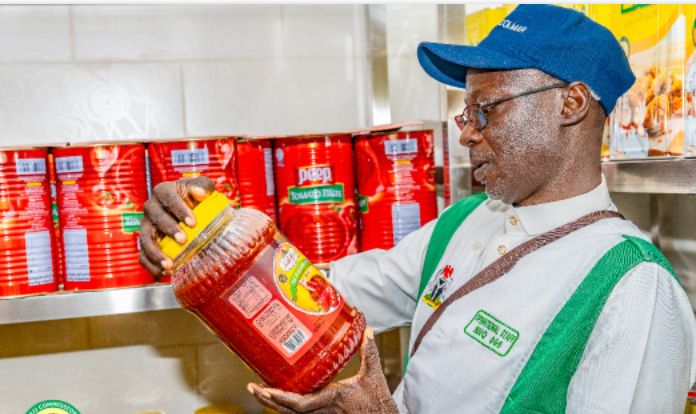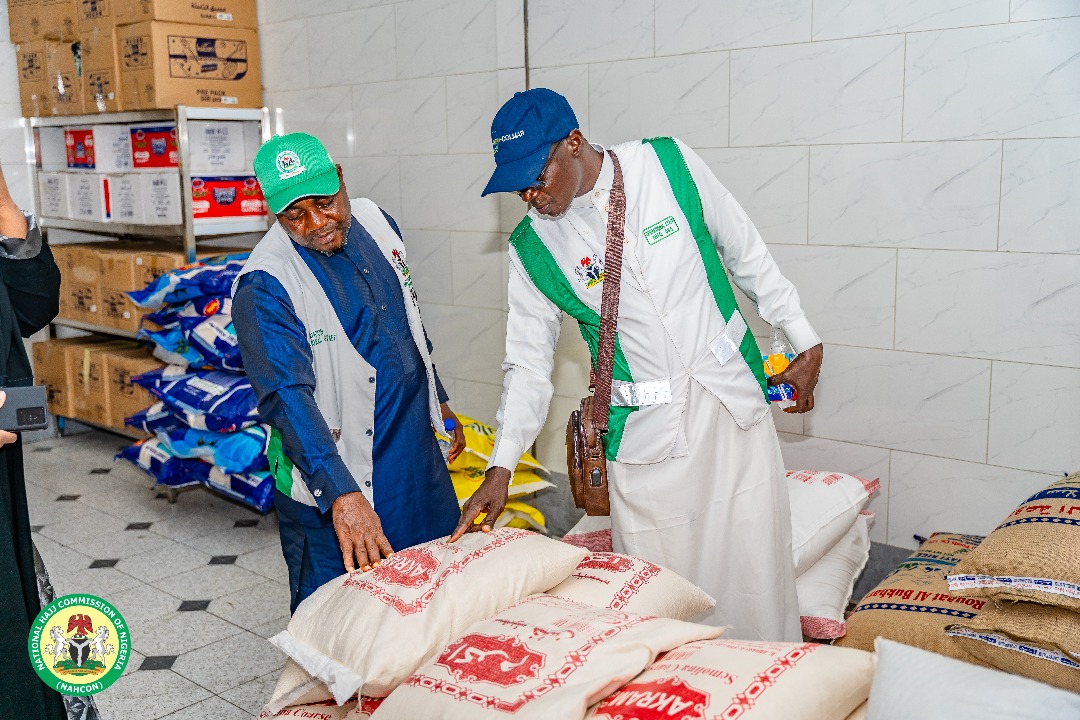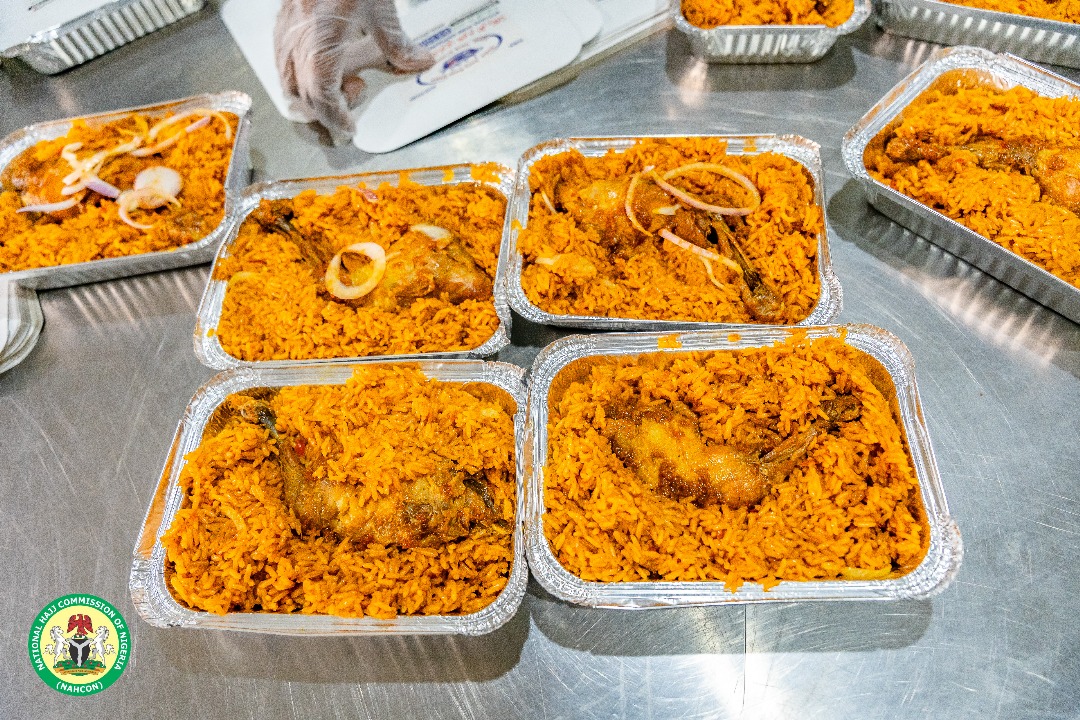
The National Hajj Commission of Nigeria (NAHCON) has embarked on a rigorous oversight system to ensure consistent quality in what the intending pilgrims eat everyday, comprising breakfast and dinner daily
The commission’s Medina Feeding Committee, headed by Abdullahi Kabir, is believed to conduct regular inspections of the seven contracted catering facilities, maintaining vigilant supervision as the massive feeding operation unfolds in real time.
“The continual monitoring of every aspect of the feeding program demonstrates an institutional commitment that extends beyond mere sustenance to encompass dignity and cultural respect,” said Alhaji Kabiru.
 As part of their ongoing quality assurance efforts, committee members perform systematic evaluations of all seven contracted kitchens. They are Africana Home Restaurant, Amjad Alghraa, Al-Andalus, Mawasim Khairat, Na’a Azad, Zowar Muktara, and Kabala Catering.
As part of their ongoing quality assurance efforts, committee members perform systematic evaluations of all seven contracted kitchens. They are Africana Home Restaurant, Amjad Alghraa, Al-Andalus, Mawasim Khairat, Na’a Azad, Zowar Muktara, and Kabala Catering.
Information reaching us at Greenbarge Reporters online newspaper said that each facility is being subjected to regular assessment against stringent criteria, encompassing sanitation protocols, equipment functionality and staff performance.
It was learnt the inspections extend beyond basic health standards, focusing particularly on workforce composition requirements that mandate the employment of Nigerian cooks and support staff within each kitchen operation.
This is to ensure culturally authentic meal preparation while creating employment opportunities for Nigerian nationals during the Hajj season.
 Committee inspectors are said to meticulously examine the quality of all food ingredients, verifying that raw materials meet nutritional standards before entering the preparation process. “They scrutinize expiration dates on every packaged item, from spices to preserved goods, enforcing a zero-tolerance policy for expired products. Additionally, inspectors verify strict adherence to NAHCON’s mandate for natural ingredients, prohibiting artificial flavor enhancers and preservatives that could compromise the nutritional value or authenticity of traditional Nigerian dishes.”
Committee inspectors are said to meticulously examine the quality of all food ingredients, verifying that raw materials meet nutritional standards before entering the preparation process. “They scrutinize expiration dates on every packaged item, from spices to preserved goods, enforcing a zero-tolerance policy for expired products. Additionally, inspectors verify strict adherence to NAHCON’s mandate for natural ingredients, prohibiting artificial flavor enhancers and preservatives that could compromise the nutritional value or authenticity of traditional Nigerian dishes.”
It was learnt that the inspections ensure that kitchens maintain compliance with NAHCON’s exacting standards while serving thousands of meals twice daily.
During a critical meeting with food service providers, Madinah Coordinator Alhaji Abdulkadir Oloyin addressed concerns regarding packaging standards with particular firmness.
“The use of substandard containers is categorically unacceptable,” Oloyin declared, mandating uniform packaging requirements designed to preserve food safety while enhancing the dignity of the dining experience.
The committee’s directives extended beyond technical specifications to embrace cultural authenticity, requiring strict adherence to NAHCON’s approved Nigerian menu.
As the Hajj progresses into its more intensive phases, the Madinah Feeding Committee’s methodical approach stands as a case study in effective pilgrim welfare management.



